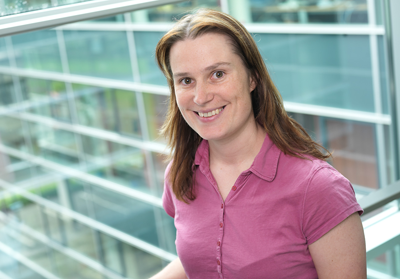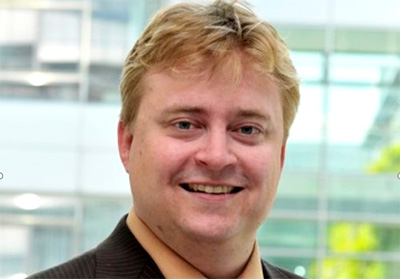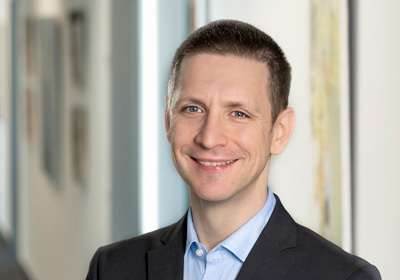Title: Bringing the Human into the Loop
The increasing availability of neuro-physiological measurement devices at an always lower cost and with a decreasing level of intrusiveness, bears a so far mostly untapped potential for the software engineering (SE) field both from a theoretical and from an applied perspective. This includes the development of neuro-adaptive software that responds to the emotional and cognitive state of the user, novel ways to interact with software, but also provides the basis for a more in-depth understanding of the challenges that occur when interacting with or developing software artifacts. While there is a substantial potential of using neuro-physiological measurement devices in SE, there are significant challenges that require inter-disciplinary efforts to be addressed. In this keynote presentation I will talk about the broader vision of using neuro-physiological measurement devices within the field of software engineering, discuss associated challenges, and present existing work at the intersection of software engineering, cognitive psychology, and neuroscience.
Download keynote » (pdf file, 3 MB)
Keynote speaker: Prof. Barbara Weber
 Barbara Weber is a full professor and head of the software engineering section at the Technical University of Denmark (DTU). Moreover, she holds an associate professor position at the Department of Computer Science at the University of Innsbruck (Austria), where she leads the research cluster on business processes and workflows. Barbara holds a Habilitation degree in Computer Science and a Ph.D. in Economics from the University of Innsbruck. Barbara has published more than 120 refereed papers, for example, in Nature Scientific Reports, Information and Software Technology, Software and System Modeling, Science of Computer Programming, Information Systems, and Data & Knowledge Engineering. She is co-organizer of the Cognise workshop series (held in conjunction with CAiSE conference), was PC chair of XP 2013 and BPM 2013, General Chair of BPM 2015, and is member of the BPM Steering Committee. She has been serving as editorial board member for the Information Systems journal and the Computing journal. Barbara’s research interests include human and cognitive aspects of software and information systems engineering, process model comprehension, process of process modeling, process mining, process-aware and neuro-adaptive software systems.
Barbara Weber is a full professor and head of the software engineering section at the Technical University of Denmark (DTU). Moreover, she holds an associate professor position at the Department of Computer Science at the University of Innsbruck (Austria), where she leads the research cluster on business processes and workflows. Barbara holds a Habilitation degree in Computer Science and a Ph.D. in Economics from the University of Innsbruck. Barbara has published more than 120 refereed papers, for example, in Nature Scientific Reports, Information and Software Technology, Software and System Modeling, Science of Computer Programming, Information Systems, and Data & Knowledge Engineering. She is co-organizer of the Cognise workshop series (held in conjunction with CAiSE conference), was PC chair of XP 2013 and BPM 2013, General Chair of BPM 2015, and is member of the BPM Steering Committee. She has been serving as editorial board member for the Information Systems journal and the Computing journal. Barbara’s research interests include human and cognitive aspects of software and information systems engineering, process model comprehension, process of process modeling, process mining, process-aware and neuro-adaptive software systems.
Title: DevOps and Industry
As a major player in different industrial domains Siemens has to master high complexity in long term stable industrial grade software systems. In many different businesses, Siemens has gathered lots of experience applying various improvement approaches, tools and practices changing the way we build software. With DevOps numerous approaches and technologies will be integrated and taken to a next level, forming a new paradigm in software. However, to implement DevOps we have to address radical changes – questioning today’s established patterns and habits not only about how we develop, deploy and operate software but also how we design, define and manage it. This talk motivates and summarizes these changes, lays out experiences and how Siemens systematically addresses the necessary change towards our digitalized future.
Download keynote » (pdf file, 0.8 MB)
Keynote speaker: Dr. Stefan Horn, Siemens AG

Dr. Stefan Horn is a research group leader at Siemens AG, corporate technology, working on software related topics concerning development efficiency and serving as senior consultant for projects in a critical state. Prior to that, he was senior product manager at Novell, Suse Linux Enterprise, and software development process consultant at prodato GmbH after completing his PhD on schematic modelling of project processes.
Title: Agile Projects in Waterfall Surroundings—Challenges and Lessons Learned
Agile processes are becoming pervasive and are adopted by most software projects and companies. However, “agile process” describes a multitude of processes and methods, and it is commonly accepted that agile processes need to be adapted to context. Often, this context is dominated by waterfall-style processes and bureaucracies, although some of them may be disguised as agile. In this keynote presentation, I will report on experiences and lessons learned from agile projects in waterfall contexts. I will highlight challenges from the viewpoint of a small or medium company that develops software for a customer, including challenges in contract formulation and future challenges with the Clouds of DevOps on the horizon.
Download keynote » (pdf file, 3 MB)
Keynote speaker: Dr. Marcus Ciolkowski

Dr. Marcus Ciolkowski is Principal IT Consultant at QAware GmbH, an independent software manufacturer and consultancy that has been repeatedly awarded Best IT Workplace in Germany by kununu and the Great Place to Work Institute.
QAware analyzes, renovates, invents, and implements software systems for customers whose success heavily depends on IT.
Marcus Ciolkowski is expert for empirical, statistical, and data engineering methods in Software Engineering. He has been project lead and business architect for several information systems projects in the telecommunication and automotive domain.
He is currently chief business architect for an enterprise search application within the automotive domain that connects and indexes information from more than 20 backend systems and is used world-wide. The project uses an agile process and has been running since 2012 with 20 developers on average.